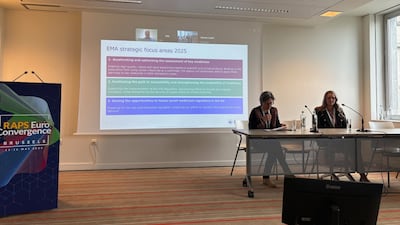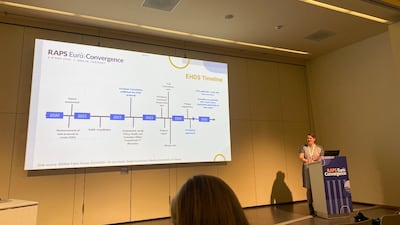Digital Technologies
GLOBE resurrects Trump’s 2020 effort to try aligning Medicare Part B prices with lower prices abroad, but key aspects of the model have evolved and are noteworthy even if the demonstration does not advance as planned.
The FDA proposed conditions for eliminating six-month animal studies in mAb development and gave examples when shorter-duration studies could be eliminated.
The UK MHRA is looking to support drug sponsors in using in silico data during the drug development process – a move that will reduce the use of animal models.
Companies have until early November to respond to a public consultation from the European Commission on its planned Biotech Act, which it hopes will help unleash the potential of small and midsize enterprises in the bloc.
The FDA is pushing the use of novel alternatives to animal models, but the Government Accountability Office said sponsors need more clarity and hopes an upcoming guidance will help.
Pharma firms are being encouraged to respond to a European Commission consultation on planned updates to its good manufacturing practice standards which reflect the “rapid advancement” of modern technologies, like AI and digital systems, in drug manufacturing.
Sponsors can expect faster evaluation processes for key medicines and greater support in mitigating medicines supply shortages this year as part of the European Medicines Agency’s digital transformation overhaul.
The European Health Data Space framework will allow companies to accelerate R&D processes and identify new molecular targets faster by facilitating centralized access to certain types of high-quality data, Finland’s Orion Pharma says.
The European Health Data Space Regulation is deliberately “vague” when it comes to defining trade secrets because the EU wants the pharma industry to make recommendations on safeguarding intellectual property, a policy officer for the European Commission says.
Legal heavyweights from Nishith Desai Associates, Anand and Anand, Corporate Law Group and EY partner and national cyber leader talk about compliance requirements that pharma and global capability centers may need to consider as India strengthens the framework for the protection of digital personal data.
Sara Brenner has been a key figure in the FDA’s diagnostics team, but her choice as acting FDA commissioner likely has more to do with her background with advanced technology and comfort level with the tech-focused side of the Trump transition team.
The Council of the EU has formally adopted the European Health Data Space regulation, meaning that it will soon enter into force in the EU. Experts explain what this means for the pharmaceutical industry.
mHealth data generated by smartphones and wearables show potential for enhancing the clinical evidence used in regulatory decision-making, but there are “notable challenges” that may hinder the use of such data, EU regulators say.
Draft recommendation for investigators to maintain a task log of activities that local health care providers perform was removed from final guidance on decentralized clinical trials. Other changes include more detail on US FDA oversight and what HCPs can and cannot do in such studies.
The Australian teletrials program has surpassed expectations at its mid-way point and is being used by drug and device sponsors looking to enhance trial participant recruitment and retention by enabling access to rural, regional and remote areas.
The implementation phase of the European Health Data Space is an opportunity to address “critical aspects” of the new regulation that require clarification, says pharmaceutical industry federation EFPIA.
Europe’s Innovative Health Initiative, a public-private funding partnership, has put out a call for a research project that could help analyze the use of regulatory sandboxes in health care innovation in addition to three others.
In an interview with the Pink Sheet, Troy Tazbaz, director of the US FDA's Digital Health Center of Excellence, says the agency lacks authority to regulate assurance labs, which would be used to help AI developers ensure their models are working correctly before submitting them for approval.
Faster, more powerful and able to handle voices and visual images, newly released AI platform GPT-4o could potentially accelerate many tasks currently handled by pharma firms' medical affairs professionals, who are exploring ways to keep themselves relevant while embracing the unprecedented technology, DIA China hears.
Real-world data collected from a wide range of sources, such as wearable devices and public databases, can be used by pharmaceutical companies to boost their marketing authorization and health technology assessment applications, a regulatory policy expert from Sanofi says.




















